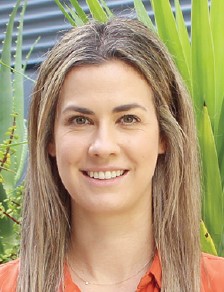

Blog

Vital life skills underpin year of learning
Monday January 10, 2022
 On my first day as an intern, I stood at the top of the stairs in the middle of the hospital and my inner critic told me I didn’t belong.
On my first day as an intern, I stood at the top of the stairs in the middle of the hospital and my inner critic told me I didn’t belong.
It reminded me that I was a journalist, and tried to convince me it was a fluke I got into medicine.
I was very aware of the things I didn’t know about being a doctor and I felt like a fraud.
Before I was Dr Kelly Bell, terrified intern, I was Kelly Bell, Chief of Staff at The Kalgoorlie Miner and not long before that I was a journalist for The West Australian regional newspaper group, living and working in Port Hedland.
In December 2020, via a virtual ceremony, I had the MD suffix added to my name.
But, deep down, I think I’ll always feel like the kid from rural Victoria who spent most of my childhood on Pop’s cattle farm, doing my best to make him proud.
Navigating my new career has had moments of confusion, nervousness, acceptance, joy, sadness, exhaustion and contentment.
I have been fortunate to be well supported and encouraged by the postgraduate medical education team at the hospital, especially as I have negotiated working with a chronic condition for the first time.
I feel even luckier to have 10 fellow interns to walk this journey with me, who have been there for me every day.
In addition to having good support, I’ve learnt some vital life skills in the past year that I feel every junior doctor can benefit from as they navigate their new career:
- Have a healthy routine to help decompress after a shift. I’ve found that having small rituals, such as calling someone or going for a walk, helps to switch off after work.
- Keep talking to people, even when times get tough. As doctors, what we do is highly emotional and it is okay to share those emotions with those around you.
- Make an effort to catch up with someone outside your hospital bubble on your days off. A walk along the river, catching up over a coffee or just having a chat can be beneficial.
- Ask all the questions you feel you need to ask at work. After all, the purpose of your internship is to help you learn everything you can about being a doctor.
- Be proactive about finding out how things work in your hospital and share this information with your colleagues.
- Trust your gut and voice any concerns about your patients. As a doctor, you are an advocate for your patients and it’s so important to escalate your concerns if you’re worried.
- Wear a name badge. It creates connections with your patients, your colleagues and the wider hospital team, which helps build relationships.
- And most importantly, please tell others if you are not okay. If you don’t feel comfortable telling someone
at your hospital, reach out to your GP or call a friend outside of the hospital.
Lastly, don’t underestimate the importance of taking a moment to appreciate the small things, like being present with a patient who is crying or making friends with the scared kid in the emergency department.
One of the most important and rewarding things about being a doctor is remembering how you are helping people every day, even in these small moments.
Wherever you are in your medical career, I hope you always remember the immense sense of gratitude and joy being a doctor can bring.

